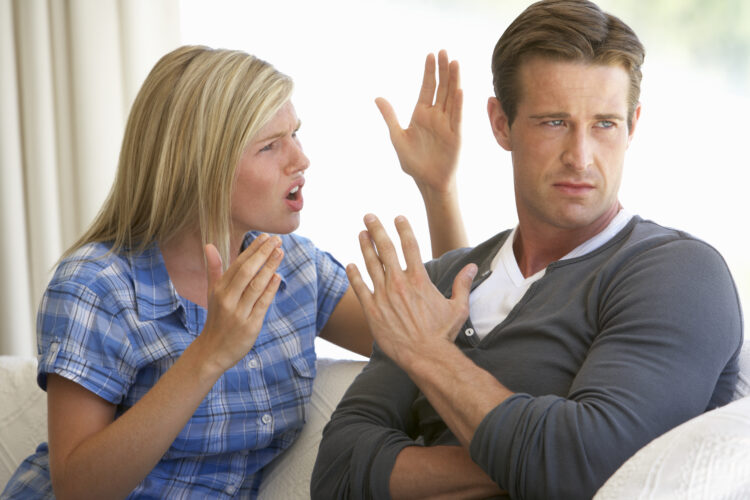
It’s a question I hear over and over from people … “Is my relationship toxic?” Healthy relationships nourish and support us. Like poison, a toxic relationship is one that is damaging to us. Instead of uplifting us, it makes us feel worse. When it ends, we might experience trauma, post-traumatic stress, or a lessening of our self-esteem and trust in ourselves and others. Although friends and family might tell us to leave, it may be hard to let go – despite the fact that the relationship is harmful and painful.
Signs and Symptoms of Toxic Relationships
In a survey conducted by Glamour Magazine in 2011, 60 percent of women 18-35 years old said that they’d experienced abuse. About half were in a physically abusive relationship, but don’t underestimate the damage of emotional abuse. It’s more predictive of stress and depression than physical abuse, which is almost always preceded by emotional abuse.[i] It’s not uncommon for people to minimize or deny bad behavior or rationalize their pain and unmet needs and thus stay in a toxic relationship. In so doing, they underestimate the real consequences to their mental and physical health, including increased stress and depression. Some signs that you may be in a toxic relationship are:
- You feel drained or starved instead of nourished.
- Your behavior is motivated by fear, anger, or guilt.
- Your needs and feelings are ignored.
- You “walk on eggshells,” for fear of upsetting your partner.
- You frequently feel used, invisible, or disrespected (see narcissistic abuse).
- You’re increasingly feeling self-doubt, insecurity, guilt, and inadequacy.
Any of the following behaviors are symptomatic of a toxic relationship:
- Domestic violence (including physical and sexual abuse or property damage)
- Living with an addict or alcoholic.
- Chronic dishonesty and relationship betrayal
- Gross irresponsibility
- Frequent or big mood swings
- Chronic passive-aggressiveness
- Misappropriation of money or property
- Emotional abuse (including frequent verbal abuse and manipulation, belittling, controlling, punishing, or withholding behavior)
What to Do
If you’re experiencing any of these signs or symptoms, don’t keep it secret. If you or a child is being physically abused, get help and access to safety immediately. Talk to someone you trust and seek professional help. If there is violence or coercion, individual counseling for each partner is preferred. If your partner is unwilling to get individual help or attend conjoint sessions, get individual psychotherapy for yourself. A relationship can change when only one person is in counseling.
By not reacting, and learning to trust yourself, speak up, and set boundaries, the toxic patterns in your relationship can improve. Meanwhile, keep a journal of your feelings. Observe and note your partner’s behavior, how it makes you feel, what is said and what you’d like to say. Take action to raise your self-esteem and learn how to be assertive. You will need support in making changes. Consider whether you both are willing to:
- Reciprocate more.
- Go to individual or conjoint therapy and seek group support (such as attending a 12-Step Program; e.g. Codependency Anonymous, or Nar-Anon or Al-Anon).
- Treat each other with more respect.
- Take responsibility for your behavior.
- Care about the effect of your behavior on one another.
On the other hand, change is less likely if either of you:
- Continue to be secretive or dishonest and won’t admit it.
- Violate the law or ethical standards without remorse.
- Continue to be physically or emotionally abusive without remorse.
- Continue to be grossly irresponsible.
By getting help, your self-esteem will increase, and you will gain the confidence to better cope with the relationship or leave. Be aware that it can be harder to leave a narcissistic, abusive, or toxic relationship than a healthy one. Don’t judge yourself. The reasons are the learned helplessness and trauma-bonding that can occur in abusive relationships. Follow the steps in Dating, Loving, and Leaving a Narcissist: Essential Tools for Improving or Leaving Narcissistic and Abusive Relationships.
Once it’s over, although you may feel relief and may or may not even miss your ex, you might still need professional help to rebuild your self-esteem, learn effective communication skills, and heal from the trauma of abuse and other detrimental effects of the relationship. This frees you to once again trust yourself and others and to have a healthy, loving relationship in the future.
© Darlene Lancer 2017
[i] Sally A. Theran, et al., “Abusive Partners and Ex-Partners – Understanding the Effects of Relationship to the Abuser on Women’s Well-Being” Violence Against Women, 12:10 (October, 2006)
